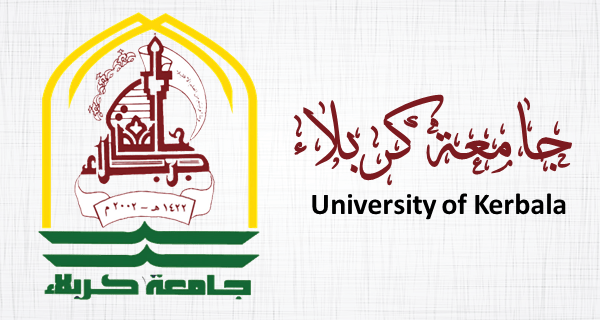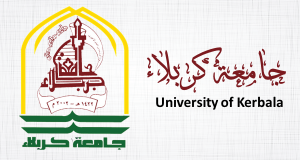Dr. Zainab Turki Nimah
College of Islamic Sciences – University of Karbala
The University is one of the community institutions that is responsible for participating in the achievement of progress and development through the performance of its various functions, which include teaching, scientific research, community service, in addition to its renewed role as a knowledge producer. The University is no longer only a service institution, but also a productive institution that contributes to production through research and scientific consulting, and preservation of the cultural heritage of the society.(1)
The quality of university education is centred around the university’s possession of teachers with skills and competencies in their specialization, and the ability to develop students’ cognitive, social, skilled and beneficial abilities in their professional and practical careers (2)
The sustainable professional development of teachers is an important input to the educational process and a necessary pivot to bring about change with a view to improving their performance through the acquisition of skills, cognitive abilities and behavioural determinants that enable them to fulfil their functional roles. It is a continuous and continuous process of growth, thus requiring an appropriate climate and scientific potential that helps to spread the University’s culture of sustainable professional development.(3),effective professional development can be defined as structured professional learning that results in changes in a teacher’s knowledge and practice. Desimone [4] argues that effective professional development possesses a strong content focus, features active learning, is collaborative and aligned with relevant curricula and policies, and provides sufficient learning time for participants. Pedagogical staff development at European higher education institutions presents many differences according to the systems, types of institutions, and disciplines [5]. This can take many different forms and may vary depending on the institution and its priorities but generally includes a mix of workshops, seminars, coaching, mentoring, and other forms of support. It may be mandatory or voluntary. However, the goal is always to provide instructors with the support they need to continually improve their teaching skills and stay current with the latest trends and practices in higher education.
Teaching is a fundamental pillar of the University’s achievement of its objectives. It is the most important element in the educational process. It deals with the student who implements the curriculum and adapts the educational attitude, chooses the appropriate learning method and enriches the attitudes of experience using educational techniques, and whatever the curriculum is good Whatever the tools and means of implementation are available, this does nothing with the unqualified and untrained teacher constantly keeping pace with modern developments. In the current era, teaching must pursue the flow of information, the diversity of means of communication and the aspirations of students at all levels of education, draw from experiences and information in his field of specialization and always seek to participate in Training programmes, whether held by formal or informal institutions and bodies, whether local, Arab or international, and to participate in scientific conferences, workshops and seminars. In view of this effective role in teaching, his development has occupied an important place in the field of education and aimed at adding and developing new professional knowledge and affirming professional values supportive of his behaviour and working on his rehabilitation and training To develop his professional competence, enhance his productivity, enhance his confidence and enable him to achieve a successful education for the student. The development of education depends on the level of professional development of teaching. The growth and development of his information and skills are positively reflected in the students’ learning and personality development, refining their thinking and enabling them to excel and excel in various areas of life. (6), sustainable professional development programmes for teachers One of the methods that bring harmony and compatibility between the individual and his or her needs, abilities and work requirements, and highlights their importance in the development and development of professional teaching. Sustainable professional development programmes are thus an important and urgent need for continuity, development and progress in the field of education. They are considered in response to today’s rapid variables, renewed demands and issues. (7) and highlights the importance of professional development Educators’ persistent preparation and growth are interrelated in the educational process due to the rapid change in the world in all fields of education and the need for continuous development consistent with the objectives of the educational process due to changes and developments in the field of education (8).
Sustainable development is linked to the development of the performance of teachers and the improvement of their professional skills through continuous training during the service in line with the developments affecting the outcomes of the educational process.
The objectives of professional development in favour of the training of teachers are well trained and planned according to their needs. This has been a prerequisite for success between professional development and the training of teachers. Therefore, the training of teachers is an integral part of the ongoing development and development process aimed at the educational process. (9)
Sustainable professional development is defined as a set of ongoing activities and programmes offered by university education institutions to their faculty members with a view to empowering them to carry out their various functional roles within the university and improving their ability to contain the problems facing them. (10)
Sustainable professional development is one of the most important modern curricula taken by States to monitor and upgrade teaching performance and improve the quality and quality of learning outputs. A study (11) showed That the importance of professional development and its motivation for the cognitive activation of in-service teachers and their ability to develop teaching skills, build learning communities among teachers and enhance teachers’ self-confidence; The promotion of the professional identity of teachers, as well as a mechanism for exchanging experiences between teachers in different disciplines or one specialization according to different experiences, depends on many methods, including peer/expert groups, self-professional development and development research projects. The importance of professional development, as it includes various activities; It can help all members of the school community to learn and grow; to become influential individuals and groups; To adapt to ongoing changes in the educational environment. (12)
Activities and programmes available to develop and determine the level of professional and managerial performance of teaching are conducive to the development of the knowledge, skills and behavioural aspects of teaching staff and increase their productive capacities, in addition to enriching effective communication between them and all workers in the field of education. The importance of sustainable development stems from its ability to develop the professional performance of teaching, provide continuous training and promote positively For all teaching skills and practices, sustainable development teaches to keep abreast of what is new in the field of education, refine the skills of professional teaching and help it to constantly adapt to everything that is new and enhance the flexibility of thinking. It also stimulates educational, professional and managerial creativity. Therefore, the university’s professional development system and policy must be developed through good planning by management. University to improve faculty performance, organize, implement and supervise programs for quality work, full follow-up and continuous evaluation (13).
Appropriate laws and legislation are developed to oblige all teachers and their collaborators to pursue professional development programmes and to sensitize academic leaders to the need to meet the needs imposed by today’s variables, as well as to identify teaching needs in the light of the objectives of the college to which they belong or work, current performance indicators and performance indicators Desired to achieve it, encourage colleges to start implementing specialized courses in the use of the Internet, learn foreign languages, thereby contributing to the production of knowledge and endeavor to constantly refine teaching processes through activities and programmes that embrace the application of modern concepts, and conform to international standards to ensure the quality of university education outputs.
Hence the importance of sustainable professional development of teaching and its impact on the efficiency and effectiveness of the University’s performance and progress as a teaching and research organization, and its role in serving society and achieving its goals and objectives, thus marking the real beginning of the quality of university education. Therefore, the importance of the role played by sustainable professional development programmes for teachers and their collaborators, both professional and academic, has become essential. The need to develop these programmes is dictated by contemporary changes and the necessity of developing their teaching skills, scientific research and service requirements.
By providing the right scientific climate for the effectiveness of sustainable professional development programmes, seeking to develop them at the individual and organizational level, building a communication system that allows for the real identification of the training needs of teachers and formulating sustainable professional development programmes according to recognized scientific standards, as well as encouraging teachers to use modern methods to develop their functional performance in the light of contemporary changes.
Effective professional development consistent with the requirements of the knowledge society is sustainable and future professional development, because it is linked to the enterprise’s career path and the teaching career. It requires some kind of leadership that can cope with future changes.
The sources
Marsa, Lamia (2009): calendar study of the faculty and leadership development project, case study, unpublished master’s thesis, Faculty of Education, Mansoura University.
Al-Meligi, Reza Ibrahim (2010): Sustainable Professional Development of Faculty Members of Egyptian Universities in Light of their Training Needs, 5th International Conference (Future of Arab Education Reform of Knowledge Society Experiences, Standards and Insights), Arab Center for Education and Development, Cairo.
Thomas. G. (2010). Professional Development In Higher Education, Theory And Practice, Open University, London.
Desimone, L.M. Improving Impact Studies of Teachers’ Professional Development: Toward Better Conceptualizations and Measures. Educ. Res. 2009, 38, 181–199. [Google Scholar] [CrossRef][Green Version].
European University Association. Promoting a European Dimension to Teaching Enhancement; European University Association: Brussels, Belgium, 2019. [Google Scholar].
Azaz, Beni Hussein Abdelhalla and Zaki, Inas Ahmed Abdelaziz (2008) Proposed criteria for the quality and availability of the kindergarten teacher and the determination of her training needs in the light of these standards, Fifteenth International Scientific Conference, Faculty of Education, Helwan University, April 2008/p. 898
Al Amiri, Mohammed Omar Ali (2018) is an introduction to comparative education. Al-Mu ‘taz Publishing and Distribution House.
Support, Mustafa Nimer (2015) The preparation and qualification of the teacher, House of the Family and the World.
Heny. P. (2011). A Study To Explore The Strategy Of Field – Based Teacher Preparation, Education Leadership And Policy Analysis, East Tennessee State University.
Al-Suwaqi, Wael Saleh( 2022) Educational development: a forward-looking vision.. Professional development models for environments, Arab Press Agency, Jordan.
Tufaner, B. (2020). The Importance of the Sustainable Development in Terms of Quality of Life of the Future Generations. Journal of Social and Administrative Sciences, 3(4).
Abdelkader, Essam Mohammed (2019) Teaching Professional Development Series – Implementation Scenario: Fifth Training Pouch – Part II, University Education House,
Cairo Camel, Rania Abdel-Mu ‘iz (2005). Professional development of in-service teaching in the field of environmental education in Egypt in the light of contemporary global experiences: analytical study, sixth scientific conference of the Faculty of Fayoum Education “Sustainable professional development of Arab teaching”, vol. 2, p. 3.





























































